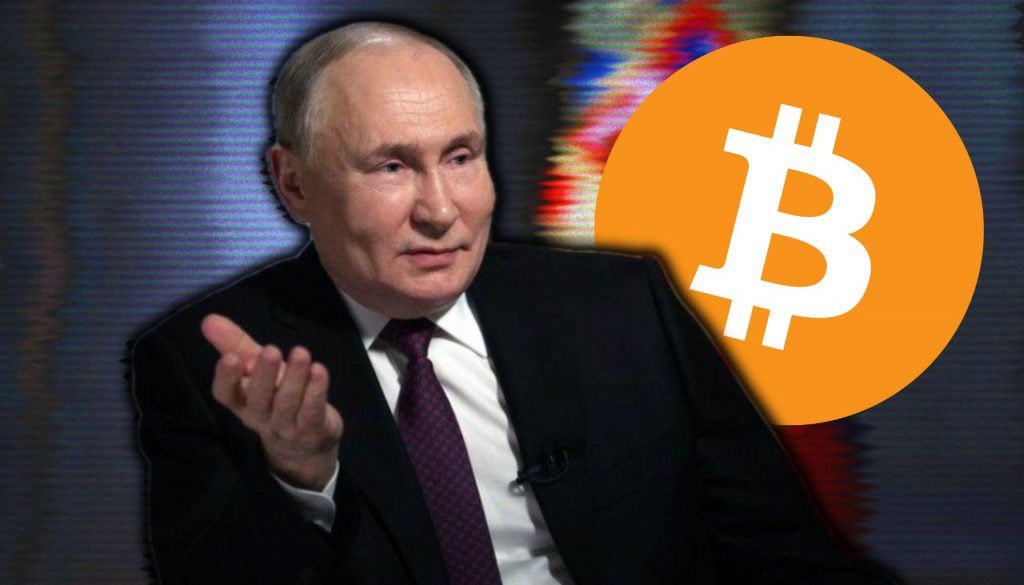
Vladimir Putin has acknowledged the ongoing development of Bitcoin and digital assets, claiming that “no one can ban Bitcoin,” amid evolving regulations surrounding cryptocurrencies in Russia.
Key Points
- President Putin signed a law recognizing digital assets as property on November 29, 2024.
- Putin’s perspective on cryptocurrencies has shifted from skepticism to recognition of their benefits.
- As of December 4, 2024, Bitcoin’s price is approximately $95,548, with a Fear & Greed Index rating of 79.
Evolving Stance on Cryptocurrencies
Recent statements attributed to Vladimir Putin suggest a significant shift in his perspective on cryptocurrencies, particularly Bitcoin. According to reports from Bloomberg, Putin has recognized that Bitcoin and other digital assets will continue to evolve. Statements such as “no one can ban Bitcoin” highlight an acknowledgment of the decentralized nature of cryptocurrencies, which complicates regulatory efforts and outright bans.
Putin’s comments are set against a backdrop of recent legislative changes in Russia. On November 29, 2024, he signed a new law that formally recognizes digital assets as property. This legislation is crucial as it permits the use of cryptocurrencies in foreign trade settlements, illustrating a strategic adjustment in Russia’s approach to digital currencies. Moreover, the law introduces essential regulatory frameworks, including provisions for taxing these digital assets, reflecting a growing recognition of their significance within the global financial landscape.
Historical Context and Regulatory Evolution
Putin’s relationship with cryptocurrencies has evolved significantly over the years. Initially, in 2017, he expressed skepticism about Bitcoin and other digital currencies, citing concerns regarding their potential use in money laundering and other illicit activities. His remarks at that time characterized cryptocurrencies as “pyramid schemes,” which sparked discussions about possible bans and strict regulations in Russia.
By January 2022, however, Putin’s viewpoint began to shift as he acknowledged Russia’s advantages in cryptocurrency mining, particularly due to its abundant energy resources and skilled workforce. This change was accompanied by his support for a government initiative aimed at regulating and taxing cryptocurrency mining activities, marking a departure from the outright ban proposed by the Bank of Russia.
Despite these regulatory advances, Putin signed a law in July 2022 that prohibited the use of cryptocurrencies for payments within Russia. Though this legislation restricted the use of cryptocurrencies as legal tender, it did not ban their possession or trading, indicating a nuanced approach that sought to balance innovation with regulatory oversight.
Recent Developments and Market Implications
Recent developments further illustrate the potential for evolving policy regarding cryptocurrencies in Russia. The latest posts from X indicate that Putin’s administration may be softening its stance, with reports suggesting the exemption of certain cryptocurrency transactions from VAT. This trend suggests a growing acceptance of cryptocurrencies and aligns with Putin’s comments regarding Bitcoin’s continued development.
While the assertion that “no one can ban Bitcoin” aligns with the principles of decentralization inherent in cryptocurrencies, it also highlights the challenges faced by governments attempting to regulate digital assets. The decentralized nature of Bitcoin complicates enforcement, allowing it to exist outside traditional financial systems. As such, while complete bans are difficult to implement, countries can exert regulatory control over how cryptocurrencies are utilized within their jurisdictions.
Current Market Landscape
As of December 4, 2024, Bitcoin’s price is approximately $95,548, indicating robust market interest and activity. The Fear & Greed Index currently stands at 79, reflecting a state of greed among investors. Such high levels of greed can lead to increased volatility and speculative behavior in the market, often resulting in significant price fluctuations.
Understanding the sentiment in the cryptocurrency market is vital for investors as it can influence trading strategies and risk assessments. Heightened greed generally suggests optimism about future price movements, but it can also foreshadow potential corrections as market dynamics shift.
The ongoing developments in Russia’s cryptocurrency framework and the broader market context indicate a rapidly changing landscape for digital assets, with implications for both investors and regulatory bodies worldwide.
Disclaimer: All information provided on this website is for informational purposes only and should not be construed as financial or investment advice. We do not guarantee the accuracy, completeness, or timeliness of the information, and we are not responsible for any financial decisions you may make based on this information. Cryptocurrencies are highly volatile assets, and any investment in them carries a high level of risk.
More Like This

Ark Invest Sells $3.9 Million In Coinbase Shares

HBAR May Get ETF Approval Before Solana or XRP Does
*AI technology may have been used to develop this story and publish it as quickly as possible.

